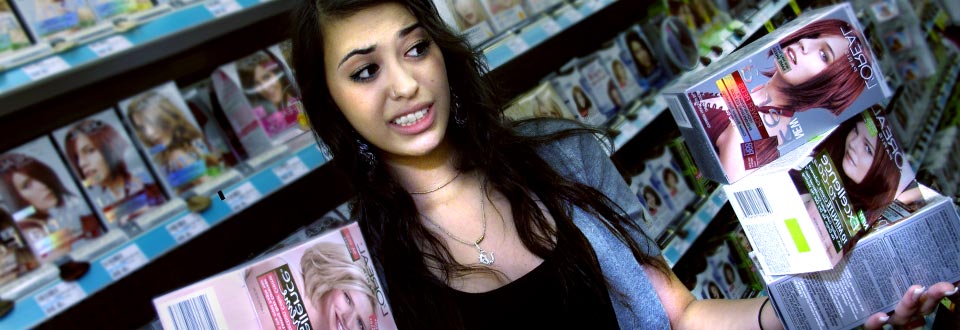The general assumption is that the more choices one has, the more freedom one has.This assumption is so deeply rooted in our psyche that we might not even consciously notice it. If, however, we come to ponder it more deeply, we can see how this assumption can be quite wrong.
First let us consider why we think that having more choices leads to freedom. We notice, for example, that if we have more money we have greater options in life. We can take a vacation almost anywhere, pick and choose what we want to buy, and so forth. These choices give us a sense of freedom, and we think that increased freedom will lead to well being. Most people want freedom and well being and thus conclude that having more choices in life is optimal.
REGRET SENSITIVITY
Now let us examine the opposite idea so that we can understand the falsity in this conception. First we look at what professor Barry Schwartz calls regret sensitivity. Regret sensitivity refers to the regret a person feels after making a particular choice While we may have many options to choose from, ultimately we have to choose only one Picking one choice implies turning down all other options. The more options we have to turn down, the more painful this decision process will feel Let us say we are planning a vacation and select to go to Hawaii. Although Hawaii is a pleasant option, by choosing Hawaii, we forego traveling to Europe, the Bahamas, and Jamaica, which feels painful and causes regret, or regret sensitivity.
SATIATION OR ADAPTATION
The second related concept is called satiation, or adaptation which refers to the idea that nothing in this world is perfect, and no material object will ever completely satisfy us. Even if one choice initially appears to be perfect, by the laws of satiation, eventually this choice will be something we tire of The senses adapt to the object of pleasure and find it less interesting than it was initially. A child, for example, is excited to get a new toy, but after some time may feel bored playing with it and want a new toy. Even when traveling, people eventually tend to want to return home, back to their usual routine. No material choice will bring us complete satisfaction even when we have many options to choose from.
PARALYSIS BY CHOICE
The third concept that shows the negative correlation between having more choices and feeling an increased sense of well being is called paralysis by choice. While making a selection, a person examines each option and its benefits. During this analysis process, some people get paralyzed, fear making the wrong choice, and may even leave the store or give up completely. When there are only two or three items to choose from the paralysis is less, but nowadays in the grocery stores, for example, there are rows and rows of items to choose from, even a simple item like toothpaste. All of these choices, instead of increasing one’s well being and freedom, can actually cause paralysis by analysis If one survives the paralysis stage and makes a choice, one still has to experience regret sensitivity and satiation as already discussed. We might not consciously notice this experience, but it does occur.
In February of 2009, VF.com published an article with the following introduction:
“Cosmetic surgery is now so popular that even young, healthy, attractive women are choosing to be ‘enhanced.’ In a quest for insight into this $13 billion industry, the author—a five-foot-nine, 120-pound 27-year-old—went undercover, asking three plastic surgeons what they’d do to her nose, her breasts, and her, uh, ‘banana rolls.’ The answers were as different as the doctors themselves.”
PERSONAL RESPONSIBILITY
Fourth is the notion of personal responsibility which refers to the responsibility placed on us, the consumers, to make the right decision when making a purchase. One uncomfortable example is the pressure placed on modern women to look sexy and physically attractive. With plastic surgery and so many cosmetic procedures, not only do women have freedom, but they are almost obliged to look attractive, particularly sexually attractive to the world. The increase in the amount of choices of beauty products leads to an increased feeling of responsibility to utilize these products and actually look attractive.
Another example of personal responsibility related to choice involves going to the doctor. Previously, in bygone ages, if one went to a doctor and told the doctor his/her symptoms, the doctor would tell the patient exactly what to do and what medicine to take. Nowadays, there is a certain ethic in place in which the doctor will not tell you exactly what to do, but will give options, along with the cost/benefit analysis of each option. Then you, the patient, as a layperson, are supposed to make a choice and live with responsibility of making it.
A third example is deciding on a vacation spot. A couple, for example, is planning a trip, and the man wants to go to Italy while the woman prefers France. They finally choose Italy, but it rains during the whole trip, while in France the sun is shining. The woman blames the man for his decision and the man feels responsible for having made the wrong selection.
Our feeling of responsibility increases with the increase of options.
HIGH EXPECTATIONS
The fifth and last concept to discuss is the high expectations which come from having many products to choose from. When purchasing a vehicle for example, the more vehicles we research, the more our expectations increase. Learning about many different features that could be have in a vehicle will pump up our expectations. Once our expectations have grown, even if we get a good quality car, we feel less satisfied since high expectations are hard to meet. When faced with fewer options, even though we purchase a qualitatively lesser product, our satisfaction is greater because we expected less. Modern generations might not be aware of this phenomena because they have been born and raised in the age of consumerism. However, if one has spent some time at a yoga retreat or has otherwise experienced living a simple life, one is aware of the satisfaction that comes from not being bombarded with so many choices. This consumerist attitude is reflected in many parts of our lives, even in the tendency to waste water or food. I watched a movie in which a man took a few bites of his sandwich, and after talking to a lady and feeling frustrated by their exchange, tossed away his sandwich and left. He was throwing away food, but someone with high expectations doesn’t think like that, but rather has the attitude that what matters most is me and my consumption.
PARADOX
Psychologists say that due to these five concepts (regret sensitivity, satiation, paralysis by choice, personal responsibility, and high expectations) having more options does not necessarily increase our freedom or well being. The paradox is that one actually becomes a happier person when one’s options are restricted. Take diet for example. If one eats an unrestricted diet, one will lose control over one’s health since food affects us physically and mentally. On the other hand, one with a restricted diet who eats just once or twice daily at regular times, or who restricts oneself from eating unhealthy foods, can stay healthy and feel happier.
Secondly, let us look at restricting our options in regards to relationships. How would a person feel if their partner thought, “Why should I oblige myself to this person? I will sleep with whomever I like.“ Or if one has a friend who is not able to commit or forego one’s personal choices for the benefit of the friend. Such a friend is not a friend at all. In these situations we see how restriction of choice is highly beneficial and can
build moral character. Restricting ourselves to one life partner, or to making decisions that benefit others rather than oneself is quite important to increasing the quality of our lives. Of course we are referring to voluntary restriction. Restriction imposed by a third party would be called oppression. Yet even oppression in some cases can be beneficial as it can prevent one from making wrong decisions that may ultimately harm oneself and others. In this country we currently see much chronic depression and this is due partially to disappointment people experience from having such high expectations. Social statisticians and psychologists have recently been studying this topic of happiness more and more due to the amount of unhappy Americans increasing as the age of consumerism increases.
Social statistics even show that children who have more options, such as kids raised in affluent families, tend to be less happy and even less prosperous people. Even though objectively they may have better paying jobs and better facilities, the inner sense of well being is often less. Having no options would be an unhealthy opposite extreme, but fewer options should be beneficial.
SPIRITUAL PRACTICE
How does this topic of choice and restriction relate to spiritual practice? Nowadays when people come to spiritual life they may find spiritual practice limiting. People ask, “Why should I limit myself? I want to have plenty of options and do whatever I want whenever I want to do it.” But in a spiritual practice, there must be restriction to help the mind become peaceful. People tend to encounter challenges when beginning a restrictive regiment, but once one breaks through the “cold turkey” period and becomes more disciplined, one becomes a very happy person whose well being increases continuously over time.
When we come to a genuine spiritual practice we experience having to voluntarily restrict our choices. For example, my practice requires me to sit down each morning from 5 am to 7 am with my chanting beads to recite a mantra. No matter what, rain, shine, or grenades falling, I sit down and chant my mantra. Something would have to be of cosmic importance to prevent me from doing this practice. What am I doing? I am restricting my options to one single option. Whatever my mind tells me or wants me to do during this time, I tell it, “Sorry pal, this is our only option, so be quiet!” Such mental discipline or voluntary restriction is a crucial part of spiritual practice. If one brings in the consumerist attitude to spiritual life, one will experience difficulty making genuine progress because one will continue to float on a sensual and mental plane. To access the happiness of the soul, one must move beyond, or transcend the sensual plane, the plane of the body and mind. The whole point of a spiritual practice is to change ourselves and to realize our greater potential. Acknowledgment that we need to change implies that currently we are not perfect, but that a higher state of consciousness is possible. We can then accept that restricting our options may indeed help us grow spiritually and experience more satisfaction.
SUM UP
In sum, having too many options simply does not result in an increase of one’s well being, but rather can increase one’s stress due to regret sensitivity, satiation, paralysis by choice, personal responsibility, and high expectations. Spiritual practices that restrict one’s choices on the other hand, will actually lead to an increased sense of well being, happiness, and peace.









